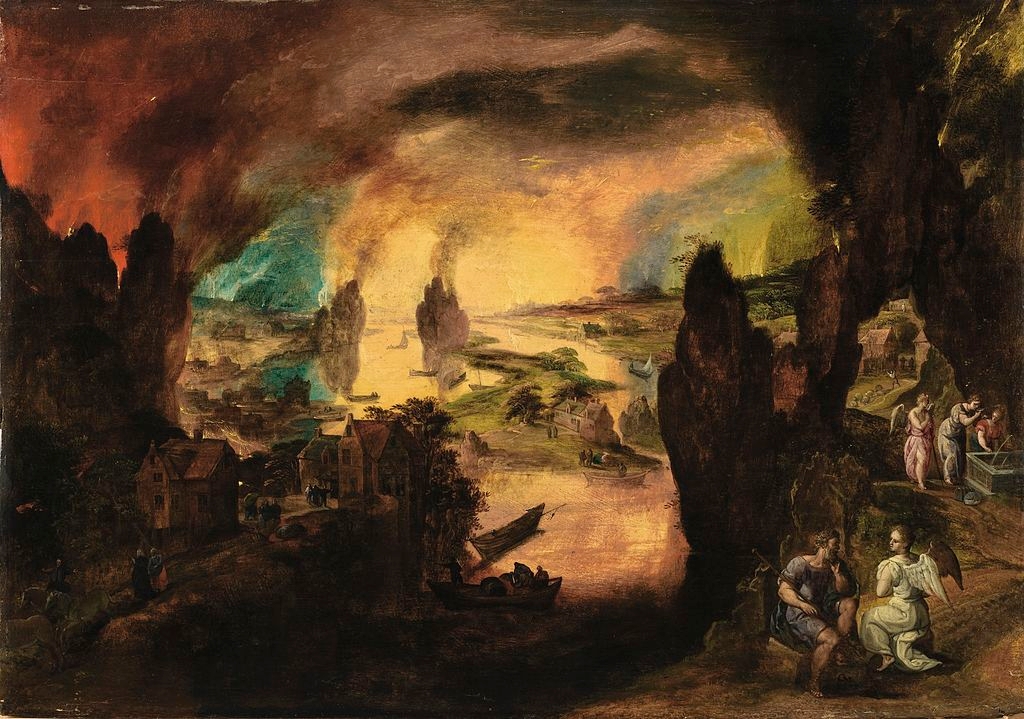Commentary on Parashat Vayera, Genesis 18:1-22:24
When a loved one dies, we often instinctively move to preserve items that remind us of them: a recorded voicemail greeting, an article of clothing scented with their favorite perfume or cologne, photos, mementos — anything and everything that helps retain a sense of their unique presence. But overly focusing on preserving the past makes us risk our future. That’s what we learn in Parashat Vayera from the destruction of Sodom and the incident of Lot’s wife, who God turns into a pillar of salt when she looks back on Sodom’s destruction.
The Bible offers scant information about the culture of Sodom that led to its obliteration. Only three significant facts are known.
First, Sodom was an exceptionally fertile territory, desirable for cattle grazing. When Abraham and Lot fight over the same grazing land, Abraham proposes they part ways. He magnanimously declares to his nephew Lot: “Let there be no strife between you and me, between my herders and yours, for we are kin. Is not the whole land before you? Let us separate: if you go north, I will go south; if you go south, I will go north.” (Genesis 13:8-9). Lot chooses to go to Sodom.
Second, Sodom had a notorious reputation. Six chapters before Lot’s wife was turned into a pillar of salt, Sodom’s inhabitants were described as “very wicked sinners against God.” (Genesis 13:13).
With your help, My Jewish Learning can provide endless opportunities for learning, connection and discovery.
Finally, it had a reputation for selfishness. The prophet Ezekiel says of Sodom that it “had plenty of bread … and untroubled tranquility; yet she did not support the poor and the needy.” (Ezekiel 16:49-50)
According to Genesis, Lot is unmarried when he settles in Sodom, so we can reasonably guess that he married a woman who was born and raised there. Lot’s wife was likely accustomed to being a well-off city dweller. She knew she was leaving a comfortable urban life forever to be with her husband, who had been a nomadic cattle herder. It isn’t surprising that she was unable to detach herself from her upper-class urban lifestyle.
Being turned into salt as punishment for her disobedience seems only fitting. The salt of tears clouds our eyes and distorts our ability to see reality for what it is. Salt is also a preservative, signifying a desire for Lot’s wife to preserve her past. For her, the thought of leaving was worse than death.
This is an understandable and powerful urge. And most of us eventually move past it, doing the heavy soul-work of donating belongings, clearing out homes, and adapting to a new reality. The story of Lot’s wife reminds us that efforts to do otherwise, to preserve the past, are ultimately futile. They encrust us with what we must leave behind and prevent us from reimagining a different but still fulfilling life.
That is the insight that the Torah teaches from this incident. To continue to live after loss, we must gently push ourselves to do what might seem impossible: to sit quietly with it, to look forward, and adapt our future to the reality of our loss.
This article initially appeared in My Jewish Learning’s Reading Torah Through Grief newsletter on Nov. 11, 2022. To sign up to receive this newsletter each week in your inbox, click here.
Looking for a way to say Mourner’s Kaddish in a minyan? My Jewish Learning’s daily online minyan gives mourners and others an opportunity to say Kaddish in community and learn from leading rabbis.



